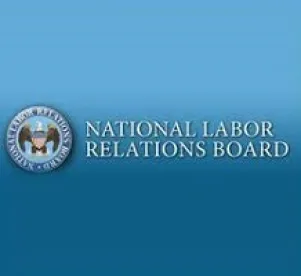Last year about this time, the NLRB changed the standard for reviewing handbook rules. The new standard takes into consideration the fact there are many other interests other than the NLRA at play in a workplace, and seems to have quieted the frenzied scrutiny of employer policies. Over the years, the heightened scrutiny of employer policies has resulted in some interesting results in cases.
There have been few cases decided by the NLRB using the new standard, and this is likely due to the fact fewer such charges are being filed over these types of issues.
On December 17, 2018, the Board released a Division of Advice Memorandum from October 2018 which evaluated an employer’s directive that employees preserve all communications related to a wage and hour class action. In Uber Technologies, Inc., 19-CA-199000, Adv. Mem. (October 2, 2018), Advice addressed two allegations stemming from the employer’s defense of a lawsuit by one of its drivers.
The facts were simple. An employee filed a federal and state class action alleging compensation issues. The employer emailed several employees, including the plaintiff/employee, notifying them of the lawsuit and directing them not to comment on the lawsuit, and further, that if anyone contacted them about the lawsuit, they should contact the in-house attorney.
The employer also sent out an internal litigation hold and document preservation email, which informed employees they must “preserve and protect” any information they possessed related to the case, including:
- All documents which contain communications pertaining to any allegation by Plaintiff that [employer] treated him unfairly in regards to his employment;
- All communications with Plaintiff; and
- All communications concerning Plaintiff.
Plaintiff filed a Section 8(a)(1) charge against the employer, alleging the two directives restrained and coerced him and other employees in violation of their Section 7 rights to discuss matters related to compensation.
Advice Concludes Directive Not To Comment on Lawsuit Was Unlawful
Advice concluded the employer’s directive to employees that they not comment about the lawsuit violated Section 8(a)(1) because it “prevents employees from discussing the lawsuit or the common grievance from which it sprang with one another, with the media or third parties.” Advice directed the Region to issue complaint on this allegation because the employees’ “right to communicate with one another and with third parties and the media about grievances and potential remedies to those grievances, including lawsuits, is a significant Section 7 interest.”
This is not a surprising conclusion given that workplace discussion is a core aspect of Section 7. Rules prohibiting discussion of compensation and other workplace issues also violate some state laws.
Litigation Hold Not Unlawful
Advice next analyzed the litigation hold and concluded it was not unlawful. First, Advice noted the litigation hold did not “explicitly address protected concerted activity” but instead addressed “all communications” and thus it was facially neutral.
Second, Advice stated that while employees would “reasonably understand the hold to include protected concerted activities” of the plaintiff/employee, the “rule does not require employees to produce the communications,” merely to preserve them.
Finally, Advice noted the employer had significant interests in issuing the litigation hold:
Like all parties to a lawsuit, it is legally compelled to preserve evidence. Adherence to this duty is key to avoiding liability for damages for spoliation of evidence. While we have found no cases specifically holding that an employer must produce the private communications of its employees, this area of law is far from settled and it is appropriate for the Employer to err on the side of caution in complying with its legal obligation to preserve all documents that may constitute evidence in the ongoing litigation. Moreover, broad litigation holds serve not just employers’ interest in avoiding penalization for spoliation of evidence, but also the interests of plaintiffs, intervenors, and the courts.
Because the broad litigation hold is “not focused on employee protected concerted activity” it was lawful.



 />i
/>i

